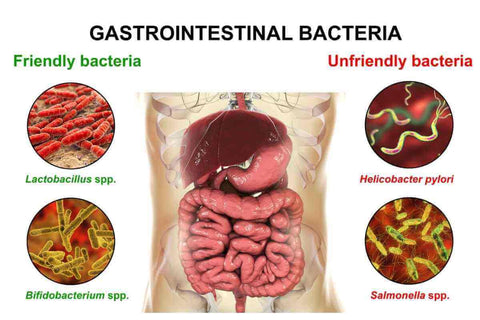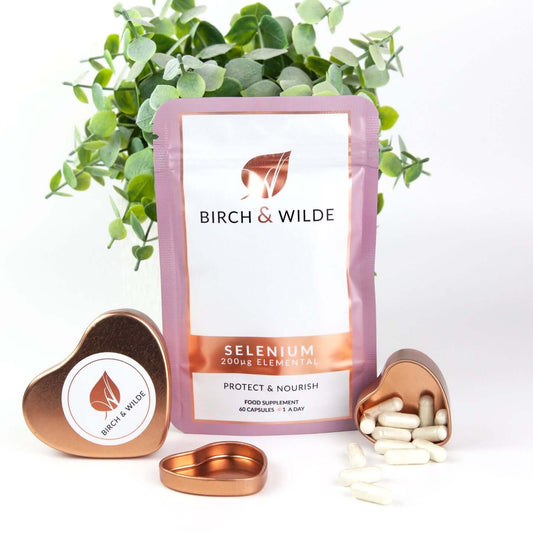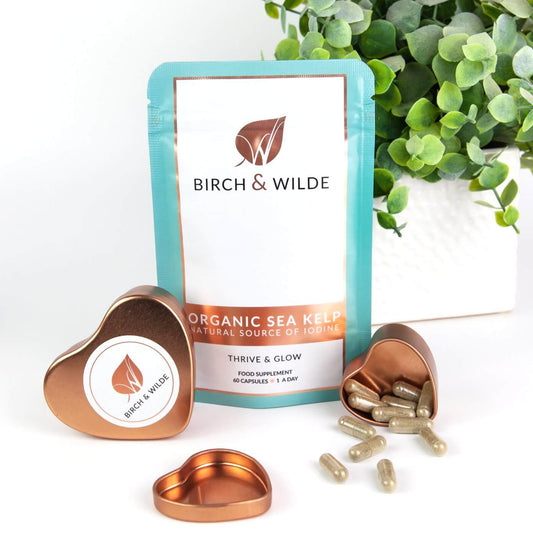Why your gut health will suffer without plenty of Fibre

You may know that getting enough fibre is an important element to gut and overall health. But do you know why? Although officially around 30g of fibre per day is recommended, for optimal health, more than this is needed.
The 2 types of fibre
There are 2 main types of fibre that we consume. Soluble and insoluble. Soluble fibre holds onto water and helps to soften faecal matter. Insoluble fibre does not hold onto water so well, but still provides bulk and helps you pass bowel movements. There are many more subsets of fibre which come from many different foods, but all of these will either fall into the soluble or insoluble categories.
How does fibre support gut health?
Provides roughage
Fibre is the roughage in food that does not get absorbed and passes through the gut. It helps to provide faecal bulk and sweeps toxins out of your colon. The frequent elimination of these toxins is important to prevent them from being reabsorbed. Food needs to be exited within a certain time frame, ideally around 48 hours to prevent it from becoming putrid.
Soluble fibre also holds onto some water which makes bowel movements easier to pass. A lack of fibre can cause constipation and hard faecal matter which can lead to haemorrhoids, a bloated and hard tummy and a few other problems.
Provides food for your probiotics
The probiotics in your gut, also frequently called friendly bacteria, play many important roles which benefit nearly every system in the body. Probiotics feed directly off the fibre which you consume, so to keep their populations thriving you need enough fibre.
Different types of fibre feed different types of probiotics so it is important to have a wide rage of fibre rich foods to promote a diverse and balanced growth of probiotics in your gut.
Helps with detoxification
As fibre passes through the digestive system it picks up and carries toxins. Some of these toxins are released from your liver. Your livers job is to filter blood and remove any circulating toxins. It then dumps then into your digestive tract so they can be excreted from the body.
If your diet is low in fibre, these toxins do not get moved out of the body quickly enough and can cause havoc in the digestive tract which may include very smelly gas, bloating, pains, aches and a decrease in the number of probiotics. The toxins may then also be absorbed back into the blood stream which gives your liver double to work to do. These can become pushed out through the skin which causes further problems with skin health and appearance.
Where can I get fibre?
Whole grains
Switching all your grains to whole grains is an easy way to increase fibre intake. Consume brown rice, whole wheat or wholegrain bread and brown pasta rather than their white alternatives. Grains mostly provide insoluble fibre, except for oats, which are an excellent source of soluble fibre.
Vegetables and fruit
Vegetables and fruit contain soluble fibre which is the type that holds into water. Try to eat 7-9 portions of vegetables and fruit per day. Not only will this give you plenty of fibre and feed the probiotics in your gut, but you will also see an improvement in overall health and your risk factors for certain chronic diseases will decrease.
Beans & lentils
Beans and lentils contain soluble fibre and are also a good source of protein. This category includes chickpeas which are a particularly good food source for the probiotics in your gut.
Which supplements can help?
There are a few supplements on the market to help increase your fibre intake, but which ones are best for helping your gut flora to thrive?
Inulin
Inulin is a type of fibre typically derived from chicory root. Inulin is particularly helpful for supporting the concentration of a group of probiotics called bifido-bacteria.
FOS
FOS is short for fructo-oligosaccharides. This is another type of fibre and prebiotic for the gut. FOS is particularly useful for supporting probiotics from the lactobacillus family as well as the bifido-bacteria family.
Psyllium husk
Psyllium husk is an excellent water-soluble fibre that helps to trap toxins and remove them the body. Psyllium husk is great for those with constipation if it is taken with enough water. Psyllium is also recommended for those who are actively detoxing.




















